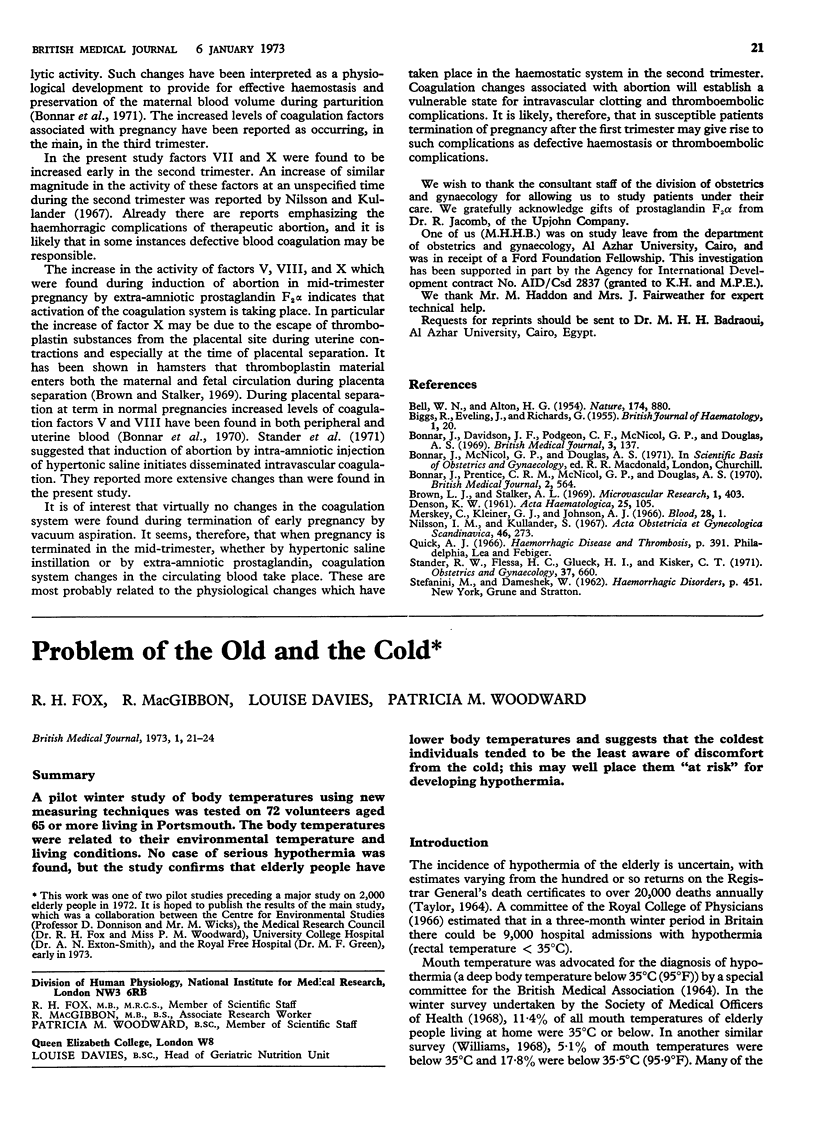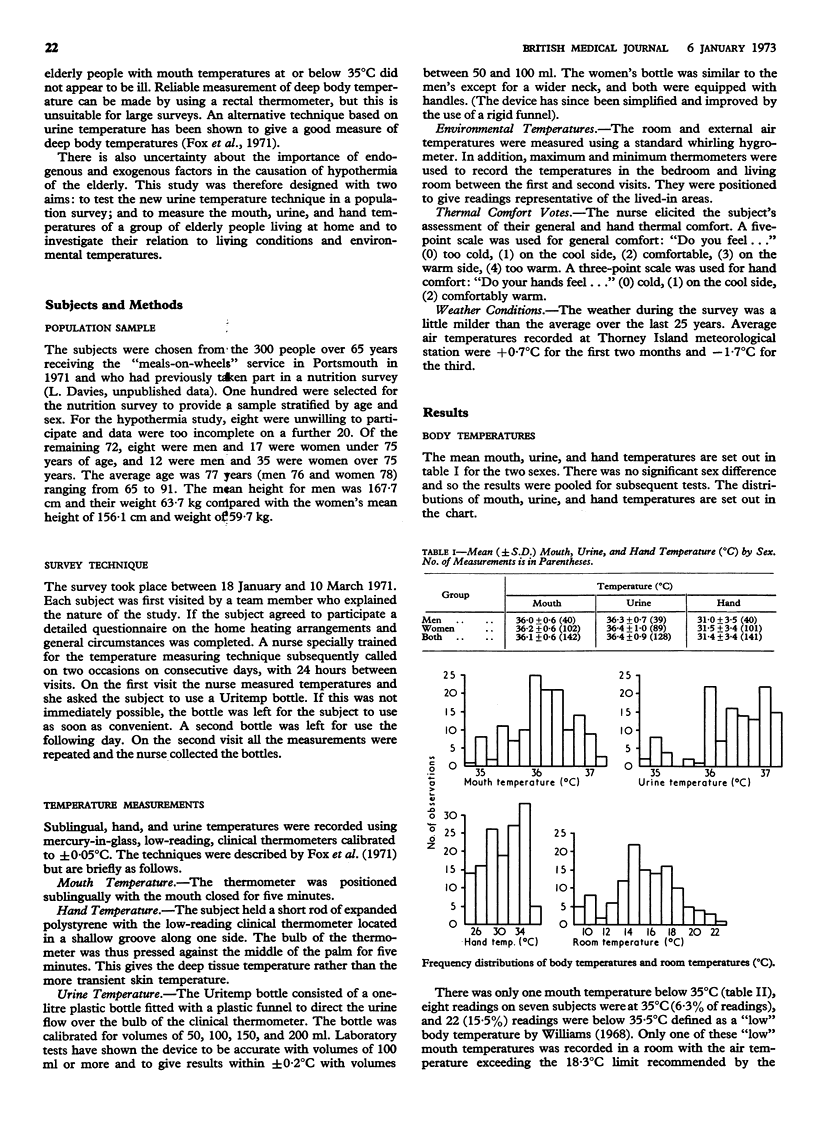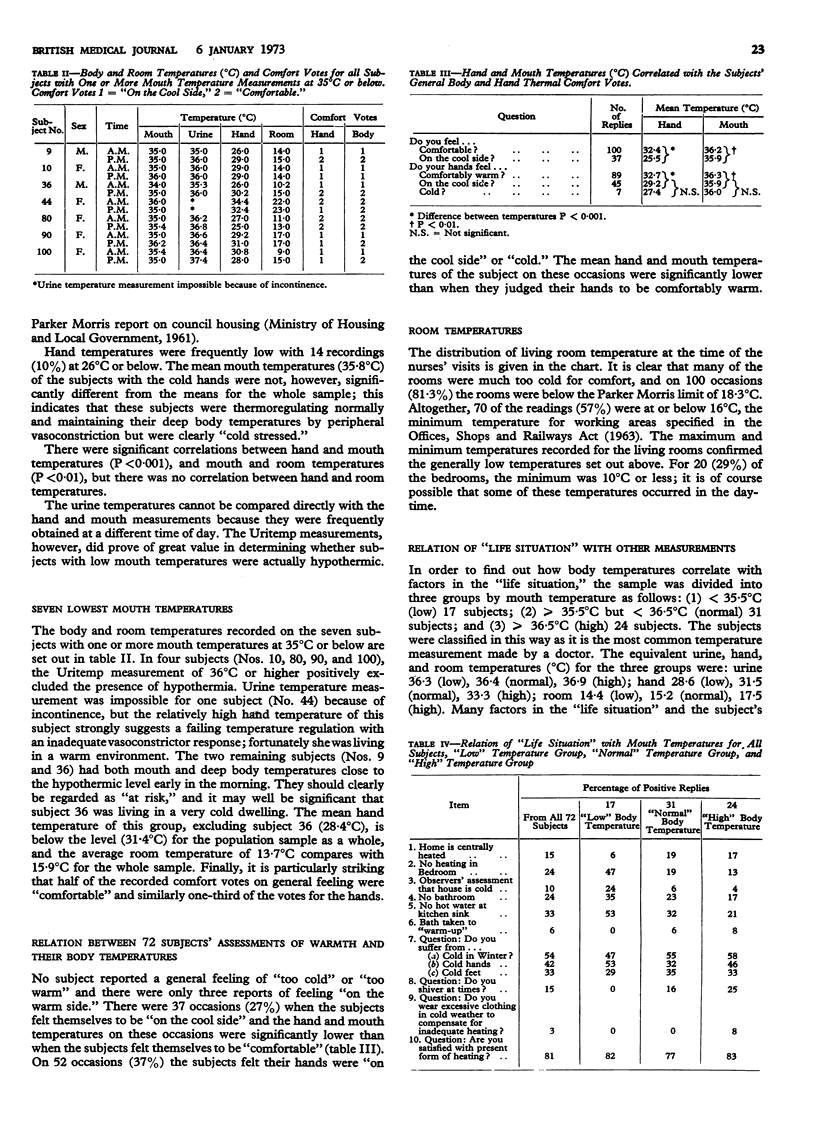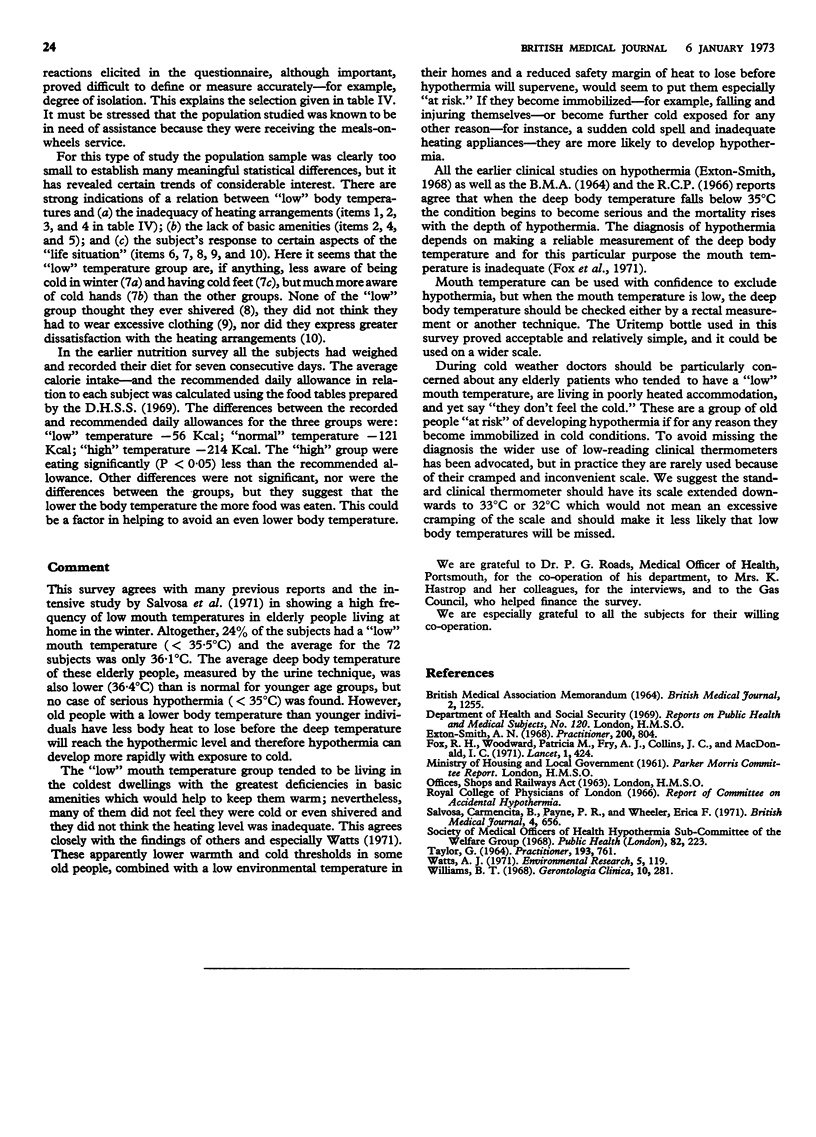Abstract
A pilot winter study of body temperatures using new measuring techniques was tested on 72 volunteers aged 65 or more living in Portsmouth. The body temperatures were related to their environmental temperature and living conditions. No case of serious hypothermia was found, but the study confirms that elderly people have lower body temperatures and suggests that the coldest individuals tended to be the least aware of discomfort from the cold; this may well place them “at risk” for developing hypothermia.
Full text
PDF



Selected References
These references are in PubMed. This may not be the complete list of references from this article.
- Exton-Smith A. N. Accidental hypothermia in the elderly. Practitioner. 1968 Jun;200(200):804–812. [PubMed] [Google Scholar]
- Fox R. H., Woodward P. M., Fry A. J., Collins J. C., MacDonald I. C. Diagnosis of accidental hypothermia of the elderly. Lancet. 1971 Feb 27;1(7696):424–427. doi: 10.1016/s0140-6736(71)92414-7. [DOI] [PubMed] [Google Scholar]
- Salvosa C. B., Payne P. R., Wheeler E. F. Environmental conditions and body temperatures of elderly women living alone or in local authority home. Br Med J. 1971 Dec 11;4(5788):656–659. doi: 10.1136/bmj.4.5788.656. [DOI] [PMC free article] [PubMed] [Google Scholar]
- TAYLOR G. THE PROBLEM OF HYPOTHERMIA IN THE ELDERLY. Practitioner. 1964 Dec;193:761–767. [PubMed] [Google Scholar]
- Williams B. T. Oral temperatures of elderly applicants for welfare services. Gerontol Clin (Basel) 1968;10(5):281–287. doi: 10.1159/000245193. [DOI] [PubMed] [Google Scholar]


